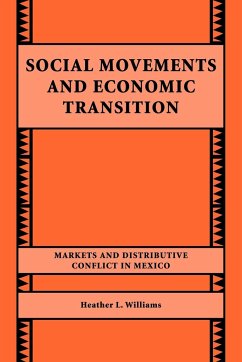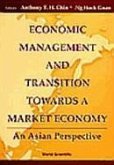This book examines patterns of political mobilization among groups in Mexico.
This book examines patterns of political mobilization among groups in Mexico whose livelihoods have been threatened by trade opening, fiscal retrenchment, and market liberalization. Using data from case studies of a worker-based movement and a farmer-based movement, Williams argues that economic transition, in altering modes of state-society bargaining, has shifted the locus of contention and has altered the form and shape of distributive protest. Williams further argues that social movements make strategic choices in their use of resources in order to widen their constituencies and extend the length of their insurgencies.
Review quote:
Advance praise: 'This richly documented and thoughtful book illuminates how Mexico's crisis and market transition have altered the channels and the means that groups have at their disposal to pressure the Mexican state. Rather than focus on either political economic changes or on the sociology of protest, Williams links the two dynamically, coming up with a fresh analysis of how state-society negotiation over distributive issues has changed. Her explanation predicts (and now postdicts) why it was no longer possible for the Mexican political elite to manage consent and hold off political change.' Sid Tarrow, Cornell University
Advance praise: 'Smartly theorized and empirically rich, William's study provides a sobering analysis of what market-oriented policies do not achieve. It also offers an engrossing account of how debt-ridden small farmers and workers in state-owned enterprises - groups seemingly consigned to oblivion under neoliberalism - have fought back in imaginative and uproarious ways, creating a new public consciousness about the relationship between local problems and national economic policies. This meticulous study will become a benchmark in the burgeoning literature on new social movements.' Gilbert Joseph, Yale University
'Beautifully written and meticulously researched, this book will be valued not only by Mexicanists and students of social movements, but by all who seek better understanding of the social and political dimensions of economic change.' Social Movement Studies
Table of contents:
List of figures and tables, Preface; Acknowledgments; Part I: 1. Markets, machine politics and protest in Mexico; 2. The insurgent's toolbox; Part II: 3. Privatization and protest in a steel town; 4. Shifting markets, shifting demands in Lázaro Cárdenas; 5. The rise of the Barzón farmers' movement in Zacatecas; 6. The Barzón movement: from a farmers' to a debtors' insurgency; Conclusion: the interplay of movements and markets; Referemces; Interviews cited; Index.
Hinweis: Dieser Artikel kann nur an eine deutsche Lieferadresse ausgeliefert werden.
This book examines patterns of political mobilization among groups in Mexico whose livelihoods have been threatened by trade opening, fiscal retrenchment, and market liberalization. Using data from case studies of a worker-based movement and a farmer-based movement, Williams argues that economic transition, in altering modes of state-society bargaining, has shifted the locus of contention and has altered the form and shape of distributive protest. Williams further argues that social movements make strategic choices in their use of resources in order to widen their constituencies and extend the length of their insurgencies.
Review quote:
Advance praise: 'This richly documented and thoughtful book illuminates how Mexico's crisis and market transition have altered the channels and the means that groups have at their disposal to pressure the Mexican state. Rather than focus on either political economic changes or on the sociology of protest, Williams links the two dynamically, coming up with a fresh analysis of how state-society negotiation over distributive issues has changed. Her explanation predicts (and now postdicts) why it was no longer possible for the Mexican political elite to manage consent and hold off political change.' Sid Tarrow, Cornell University
Advance praise: 'Smartly theorized and empirically rich, William's study provides a sobering analysis of what market-oriented policies do not achieve. It also offers an engrossing account of how debt-ridden small farmers and workers in state-owned enterprises - groups seemingly consigned to oblivion under neoliberalism - have fought back in imaginative and uproarious ways, creating a new public consciousness about the relationship between local problems and national economic policies. This meticulous study will become a benchmark in the burgeoning literature on new social movements.' Gilbert Joseph, Yale University
'Beautifully written and meticulously researched, this book will be valued not only by Mexicanists and students of social movements, but by all who seek better understanding of the social and political dimensions of economic change.' Social Movement Studies
Table of contents:
List of figures and tables, Preface; Acknowledgments; Part I: 1. Markets, machine politics and protest in Mexico; 2. The insurgent's toolbox; Part II: 3. Privatization and protest in a steel town; 4. Shifting markets, shifting demands in Lázaro Cárdenas; 5. The rise of the Barzón farmers' movement in Zacatecas; 6. The Barzón movement: from a farmers' to a debtors' insurgency; Conclusion: the interplay of movements and markets; Referemces; Interviews cited; Index.
Hinweis: Dieser Artikel kann nur an eine deutsche Lieferadresse ausgeliefert werden.








